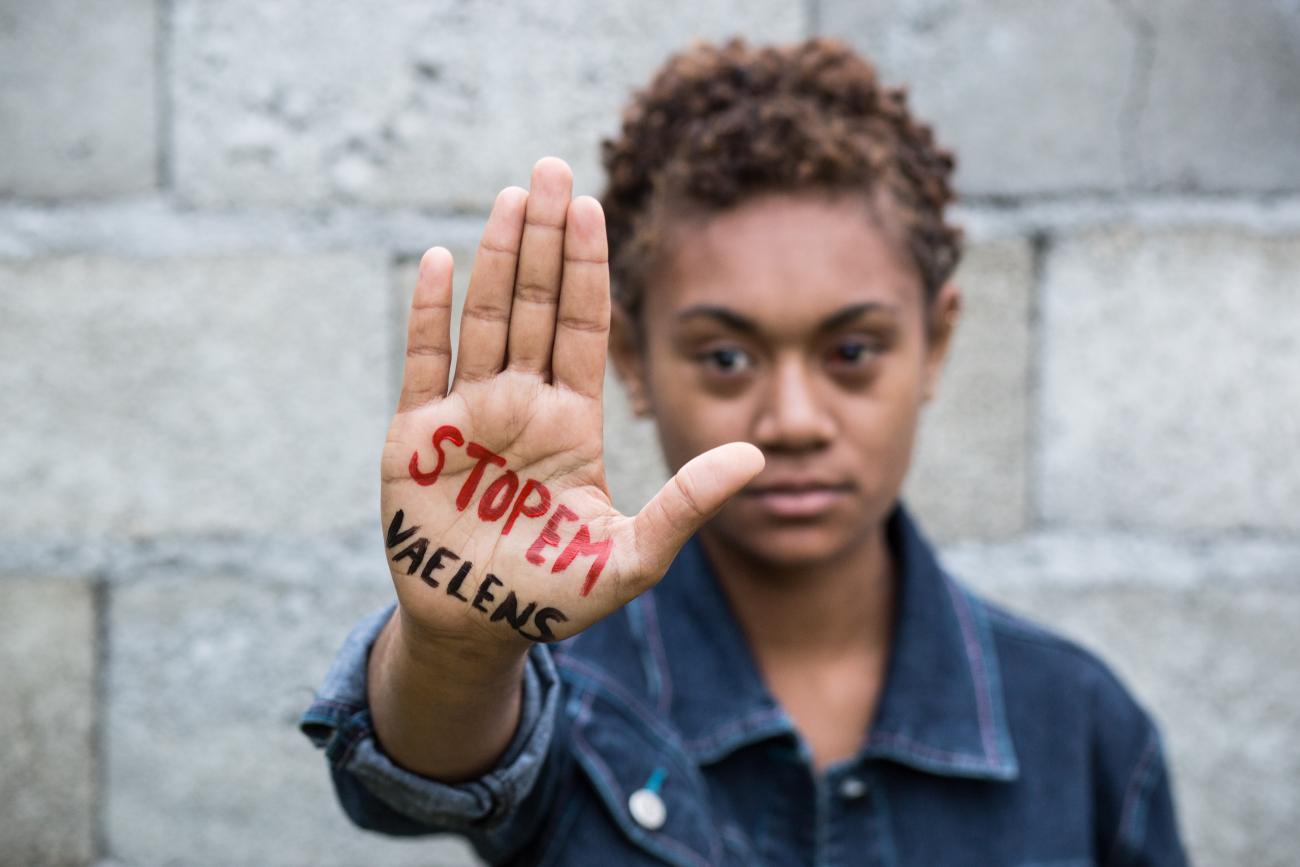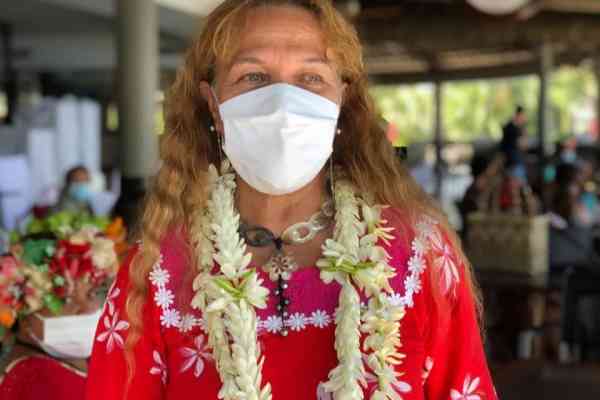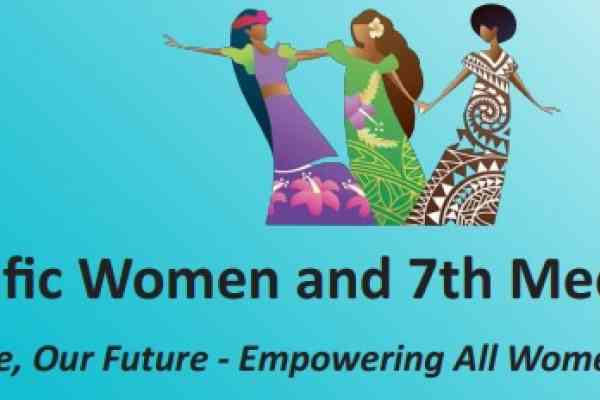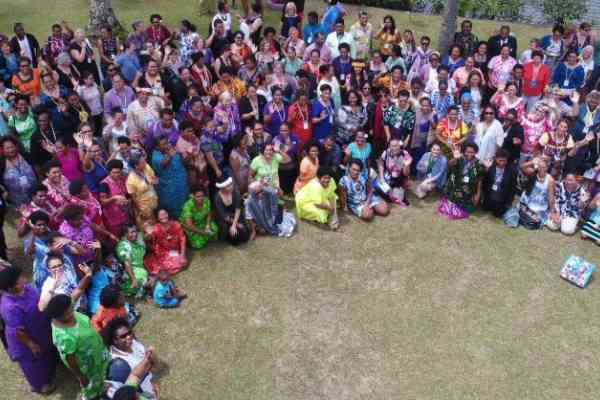The plenary session for Day two of the 14th Triennial Conference of Pacific Women heard discussions focussing on interesting solution-based and home-grown initiatives to address gender-based violence (GBV).
According to one of the panellists at the GBV plenary, Vaela Ngai, Director for the Solomon Islands Women’s Development Division at the Ministry of Women, Youth, Children and Family Affairs, an example of a homegrown initiative currently being implemented by Solomon Islands is the SafeNet referral network.
“The (SafeNet) is a network of government ministries and agencies CSOs, and NGOs that over the past two years have progressively worked to ensure the availability and accessibility of quality and essential services ranging from safe accommodation, legal advice, medical services, protection, and counselling through our referral pathway, including standard operating procedures,” Ngai said.
The members of the SafeNet include health, police, Family Support Centre, Christian Care Centre, Planned Parenthood Association, the Public Solicitors Office and the Ministry of Women, Youth, Children and Family Affairs.
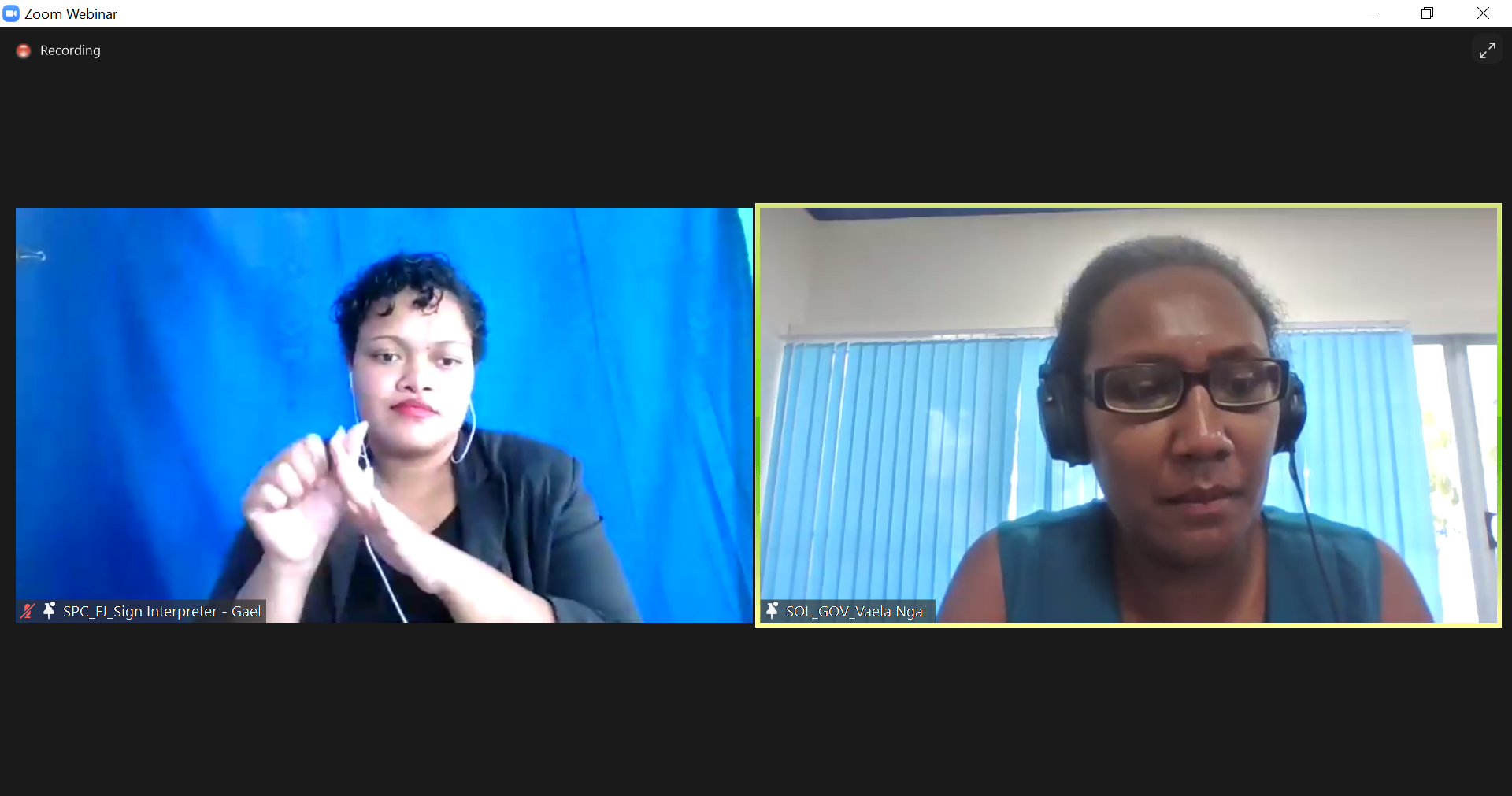 Ngai added, “the SafeNet for years had been mainly established at the national level around the capital Honiara, until more recently. At the beginning of 2018, we began the process of rolling this out to our nine provinces. We have successfully rolled out SafeNet to four of the nine provinces and will continue to roll it out to the remaining 5 provinces this year.”
Ngai added, “the SafeNet for years had been mainly established at the national level around the capital Honiara, until more recently. At the beginning of 2018, we began the process of rolling this out to our nine provinces. We have successfully rolled out SafeNet to four of the nine provinces and will continue to roll it out to the remaining 5 provinces this year.”
The SafeNet initiative continuously evolved and was tailor made to fit the context of the four provinces where it has been implemented to ensure it works regardless of whether it is at the national or provincial level.
“For example, there was the need to expand the provincial segment members to include community groups, and leaders, including chiefs, as entry points into the referral system for victims and survivors of GBV,” Ngai stated.
“This was to provide that link between victims and survivors from rural and remote areas to the gender-based violence services in the referral system.”
Ngai said COVID-19 demanded that the SafeNet initiative be adapted to the pandemic context by incorporating different health measures, creating and distributing information showing available services during the lockdown situations which included a safe net Facebook page.
She further highlighted that “for other Pacific Island Countries and Territories that want to learn about SafeNet, there is guidebook that can be found on the UN Women Asia Pacific website. This past year we have also welcomed and accommodated SafeNet study tours to Solomon Islands by Kiribati and Federated States of Micronesia.”
The second home-grown initiative to counteract GBV by Solomon Islands government is the domestic violence counselling guideline that was developed as a requirement under the Family Protection Act, 2014.
“The overall aim of this initiative is to provide protection for the public, and particularly GBV victims and survivors by establishing a registry of domestic violence counsellors in all 10 provinces of some islands including in Honiara,” Ngai shared with the participants.
Another panellist from Kiribati, Teretia Tokam shared learnings from Kiribati’s Primary Prevention Programme which aims at reducing, preventing and eliminating gender-based violence before it happens.
Tokam said one of the strong prevention programmes that is evidence based and is ideal in responding to GBV in Kiribati is the Pacific Partnership to End Violence Against Women and Girls programme.
“As part of this programme, the Kiribati government together with the Pacific Community’s (SPC) Human Rights and Social Development (HRSD) Division are implementing the Social Citizenship Education programme which works with in-service teachers, schools, school leaders and also students through their interpretation of human rights and gender equality,” Tokam highlighted.
Moderator for the GBV plenary Ofa-Ki-Levuka Guttenbeil Likiliki, Executive Director of the Tonga Women’s and Children’s Crisis Centre highlighted that with the Covid-19 pandemic, many Pacific governments have understandably redirected funding and resources towards efforts in preventing the outbreak, however, the result is that it leaves less room for essential services required by domestic violence survivors exacerbated during the Covid-19 restrictions.
“We are making progress with integrated services, providing effective prevention and response to gender based violence, developing the knowledge and capacity of health, education, law enforcement and social service providers to be able to provide a full range of integrated support, trained and skilled staff, however we still have a long way to go,” she said.
Guttenbeil Likiliki stated that a milestone achievement for the region was that all but one Pacific Island Country have ratified the UN Convention on the Elimination of All Forms of Discrimination Against Women (CEDAW) and most Pacific Island Countries and Territories have domestic violence legislations.
The 14th Triennial Conference and 7th Meeting of Pacific Ministers for Women from 27 – 29 April and 4 May respectively, is coordinated by the Pacific Community’s Human Rights and Social Development (HRSD) division and hosted by the Government of French Polynesia.
It involves a series of meetings and consultations aimed at sustaining the momentum towards gender equality in the Pacific. It includes national multi-stakeholder consultations and one virtual, regional consultation with government line ministries, feminist and women’s rights organisations, faith leaders, media, private sector, and young women. Together, Pacific governments will agree on achievable targets and develop an action plan to progress gender equality in the region.
For more information, discussions and news from the Conference, please visit: https://www.spc.int/pacificwomentriennial
